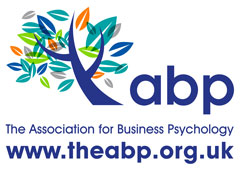We recognize that we’re living through a period of significant change in which people are driven to seek career changes either from external forces or a personal desire for change. Additionally, we’re seeing trends towards enhanced career guidance and support for young people sponsored by Governments globally. This article tells you about the assessment products we’ve developed specifically to meet those needs.
Over the past few years we have been constructing an ecosystem of World-Class assessments that we have now brought together to help individuals make informed career decisions. The solution combines best practices in career guidance based on self-concept, life and career development stages and trait and factor theories.
Self-Concept Theory is important in that it helps individuals gain a better understanding of their preferences and perceptions of work motives and needs. Building on this, using the life and career stages theory by Super, we have created the following two distinct solutions:
- Career Growth and Exploration was designed to help young people make informed career and education decisions by providing insight into their personal interests and work preferences, and how they may be related to potential careers.
- Career Maintenance and Transition was designed to help employees who are looking at making career adjustments by providing additional information about the types of industries and environments that are likely to motivate them.
Finally, Parson’s Trait and Factor Theory of occupational choice proposes that people are more productive, have higher levels of motivation and engagement in their work, and are ultimately more satisfied with their careers when they are matched to jobs that are best suited to their interests, work styles, values, and abilities. As such, we built a comprehensive and up-to-date job database using data from the US Department of Labor (O*NET® 25.0 Database), the UK Office of National Statistics’ Standard Occupational Classifications (SOC2020), the International Labour Organization’s International Standard Classification of Occupations (ISCO-08), and New Zealand’s job database.

Reports provide guided self-reflection questions to help individuals explore what aspects of a career path, job, or work incentives are important to them and how well-suited they are to different jobs. We report on Career Interest Themes, Work Styles, Work Drivers and Learning Preferences as defined in the following sections.

Career Interest Themes
Career Interest Themes measure career interests under the following six broad themes:
- (R) Realistic – People with high scores on this scale are doers. They are down to earth individuals who enjoy physical activity and working with their hands.
- (I) Investigative – People with high scores on this scale are thinkers. They enjoy activities that involve observation, investigation and exploration.
- (A) Artistic – People with high scores on this scale are creators. They are creative individuals who enjoy artistic expression and working with abstract ideas.
- (S) Social – People with high scores on this scale are helpers. They are caring and cooperative individuals who enjoy socialising and helping others.
- (E) Enterprising – People with high scores on this scale are influencers. They enjoy taking charge, taking risks and competing with others.
- (C) Conventional – People with high scores on this scale are organisers. They prefer structured tasks that require adherence to rules.

Participants can user their Career Interests Themes to help identify specific industries and/or academic paths to help them achieve their career goals.
Work Styles
Work Styles describe work preferences in terms of the following five areas:
- Engaging and Leading Others (Extraversion) – Describes your desire to engage with others, take charge, and lead others.
- Getting Along With Others (Agreeableness) – Describes how you interact with others and maintain relationships.
- Working With Ideas (Openness) – Describes your openness to new experiences and your preference for creativity and innovation.
- Achieving Results (Conscientiousness) – Describes your tendency to focus on long-term goals and maintain order and structure in your work.
- Working Under Pressure (Emotional Stability) – Describes your tendency to maintain confidence and composure when in the face of uncertainty and challenges.

Work styles can help identify the aspects of a job that match personal preferences.
Work Drivers
Work Drivers describe personal work values and motivations based on the following eight areas of work motivation:
- Autonomy – The freedom and discretion to schedule one’s work and how work is carried out.
- Stimulation – The need for stimulation, challenge and variety in one’s work.
- Opportunity – The freedom to seek opportunities, take risks and push boundaries.
- Security – The need for stability, continuity and job security.
- Purpose – The need to use one’s talents to help others and make a difference.
- Authority – The need for power and control over others ‘to give directions and instructions to others’.
- Work-Life Balance – The need to seek fulfilment in one’s personal activities outside of work.
- Technical Achievement – The need to obtain a feeling of technical accomplishment and work to the best of one’s technical abilities.
- Compensation – The need to be well-paid and have significant financial rewards.

Work Drivers can help individuals explore the types of environments, roles, and incentives that are likely to motivate them.
Learning Preferences
Learning Preferences are important because they influence how quickly somebody can learn, how readily they can adapt, how easily they can understand, and how adeptly they can solve novel problems. Understanding learning preference can help individuals identify jobs that are well suited to their abilities and preferences.
For more information, please contact us.



